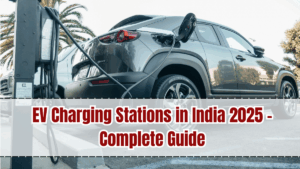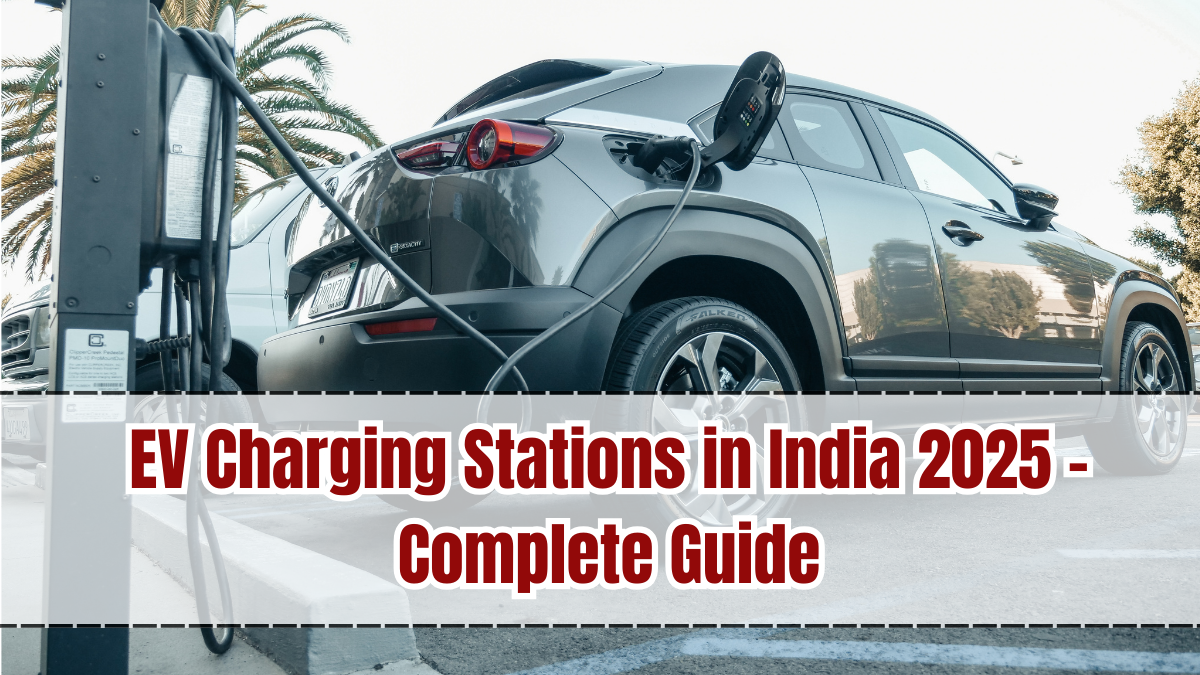The rise of electric vehicles (EVs) in India has created a new demand—accessible and efficient EV charging stations. By 2025, India has taken significant steps to strengthen its EV infrastructure, making it easier for consumers to adopt sustainable mobility. With the government’s push through the FAME II scheme and private companies entering the charging space, the country now boasts thousands of public charging hubs across highways, cities, and rural areas.
The EV charging stations in India 2025 are not just about plugging in; they’re about creating a reliable ecosystem where users can drive confidently without worrying about range anxiety.

Growth of EV Charging Infrastructure in India
In 2020, charging stations were scarce, but by 2025, India has crossed 20,000+ public charging stations, with rapid expansion continuing. Growth has been driven by:
-
Government Incentives: Subsidies for installing charging stations.
-
Private Investments: Companies like Tata Power, Adani, and Reliance investing in EV infrastructure.
-
Automaker Collaboration: Ola Electric, Ather, and Hero MotoCorp setting up fast chargers for their customers.
-
Highway Development: NHAI installing fast chargers every 40–50 km on expressways.
Types of EV Charging Stations
The 2025 charging infrastructure includes multiple formats:
-
Slow Chargers (AC): Typically used at home or small public points; take 6–8 hours for full charging.
-
Fast Chargers (DC): Found at public hubs; charge 80% battery in 45–60 minutes.
-
Ultra-Fast Chargers: New-gen hubs offering 0–80% in 20–30 minutes for premium EVs.
-
Battery Swapping Stations: Popular for two- and three-wheelers, allowing instant replacement of discharged batteries.
Cost of Charging in India 2025
Charging costs vary depending on the state, station operator, and type of charger. On average:
-
AC Slow Charging: ₹10–12 per unit.
-
DC Fast Charging: ₹18–22 per unit.
-
Ultra-Fast Charging: ₹22–25 per unit.
For a typical EV car with a 40 kWh battery, a full charge costs between ₹400–₹800, which is still cheaper than petrol or diesel refueling.
Major Players in EV Charging Infrastructure
Several public and private companies dominate the EV charging ecosystem in 2025:
-
Tata Power EZ Charge: Over 4,000 charging stations nationwide.
-
Adani EV Charging Network: Focused on metro cities and highways.
-
Reliance Jio-BP Pulse: Expanding aggressively across Tier-2 cities.
-
Ather Grid: Popular for two-wheeler charging.
-
Indian Oil & BPCL: Setting up charging hubs at fuel stations across India.
Government Plans for EV Charging in 2025
The Indian government has laid out ambitious targets for EV adoption:
-
Every 25 km in cities and every 50 km on highways to have at least one charging station.
-
Subsidies and tax breaks for businesses installing chargers.
-
Smart Grid Integration to ensure stable electricity supply.
-
Public-Private Partnerships to expand charging availability faster.
These measures ensure EV adoption is not restricted to metros but extends to Tier-2, Tier-3 cities, and even rural areas.
Challenges in Charging Infrastructure
While growth is strong, challenges remain:
-
Uneven Distribution: Metros have more chargers compared to rural areas.
-
High Installation Costs: Ultra-fast chargers require heavy investment.
-
Power Supply Issues: Some areas still face unstable electricity.
-
Standardization: Different automakers using different charging connectors.
Benefits for Consumers
The expansion of EV charging stations in 2025 benefits users by:
-
Reducing range anxiety.
-
Making long-distance EV travel feasible.
-
Lowering costs compared to fuel vehicles.
-
Providing eco-friendly alternatives to fossil fuels.
-
Offering smart connected apps to locate and book chargers easily.
Conclusion
The EV charging stations update 2025 shows India is well on its way to creating a robust electric mobility ecosystem. With government backing, private investment, and innovative technologies, EV charging is becoming faster, cheaper, and more accessible.
For EV owners, this means greater convenience and confidence in using their vehicles daily as well as for long-distance travel. As the infrastructure continues to expand, India is moving closer to its goal of becoming a global leader in sustainable mobility.
FAQs
How many EV charging stations are there in India in 2025?
India has more than 20,000 public EV charging stations as of 2025, with rapid expansion underway.
What is the cost of charging an EV in India?
On average, slow charging costs ₹10–12 per unit, while fast charging costs ₹18–22 per unit.
Are there EV chargers on highways in India?
Yes. NHAI has installed fast chargers every 40–50 km on major expressways and highways.
Which companies provide EV charging services in India?
Tata Power, Adani, Reliance Jio-BP, Ather, and Indian Oil are major players in EV charging infrastructure.
Do electric two-wheelers have separate charging stations?
Yes. Companies like Ather and Ola have dedicated two-wheeler charging grids, along with battery-swapping stations.
Click here to know more.
